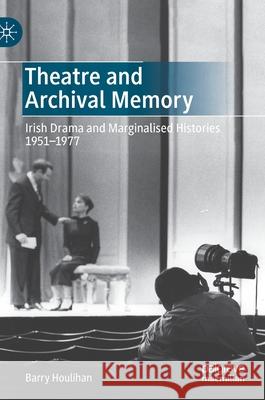Theatre and Archival Memory: Irish Drama and Marginalised Histories 1951-1977 » książka
topmenu
Theatre and Archival Memory: Irish Drama and Marginalised Histories 1951-1977
ISBN-13: 9783030745479 / Angielski / Twarda / 2021 / 275 str.
Kategorie:
Kategorie BISAC:
Wydawca:
Palgrave MacMillan
Język:
Angielski
ISBN-13:
9783030745479
Rok wydania:
2021
Wydanie:
2021
Ilość stron:
275
Waga:
0.50 kg
Wymiary:
21.01 x 14.81 x 1.75
Oprawa:
Twarda
Wolumenów:
01
Dodatkowe informacje:
Wydanie ilustrowane











